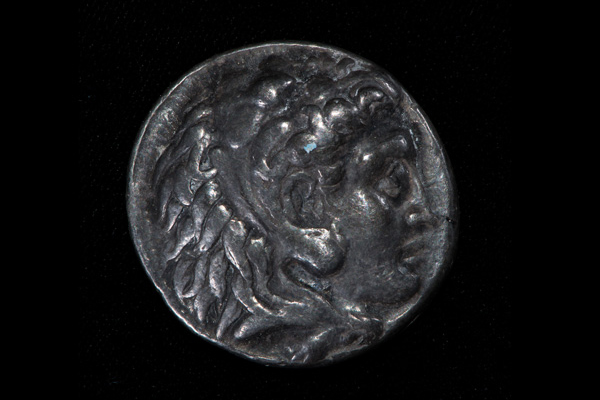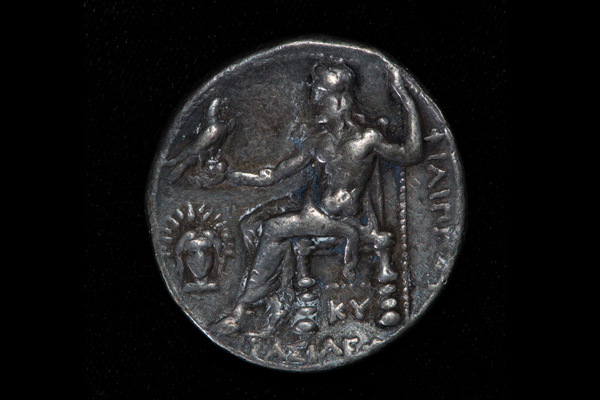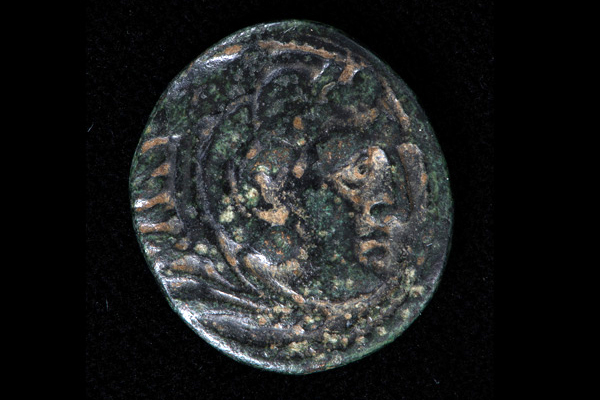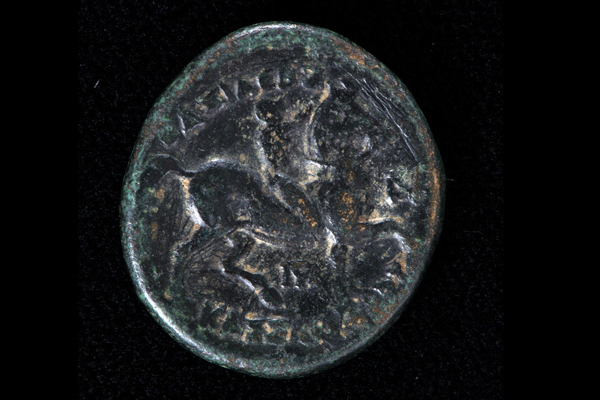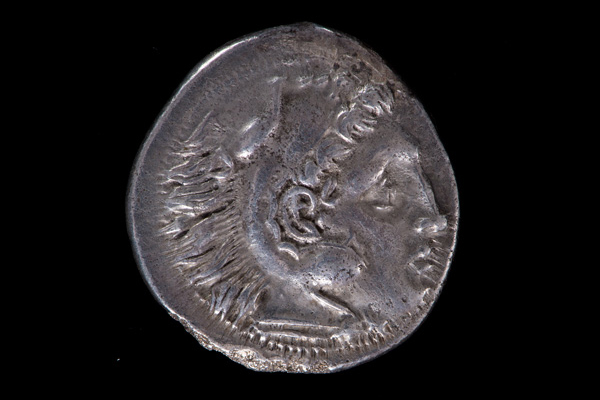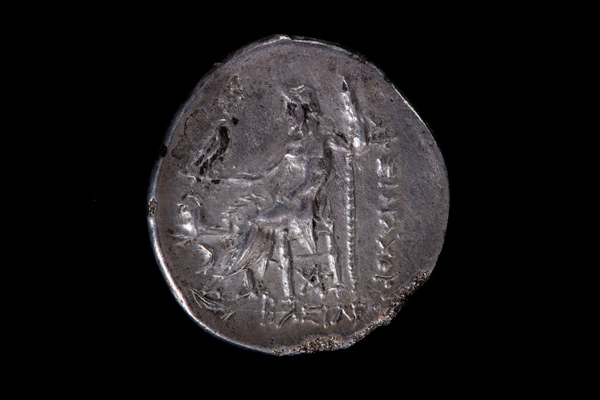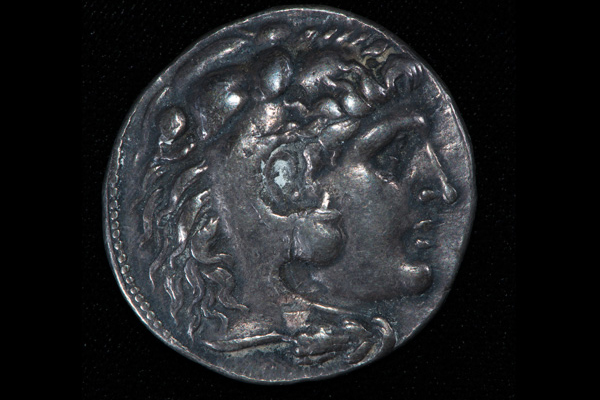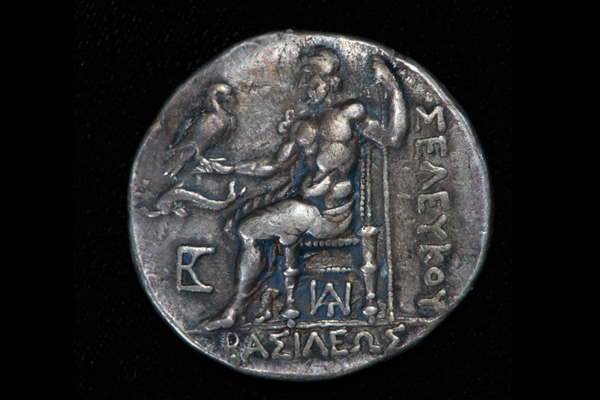Alexander’s coinage was continued under his half-brother Arrhidaeus, who took the title Philip III, when he was joint-King with Alexander’s son Alexander IV from 323-317 BCE, only substituting his name (Fig. 9). Likewise the Diadochi Seleucus and Lysimachus issued Alexander’s coins bearing their names on the reverse to stress their association with the conqueror of the territories they now claimed as their own (Fig. 11 & 12).
In contrast, as king of the Macedonian homeland Cassander issued coinage that retained the portrait of Heracles (that was not unique to Alexander’s coins) and a different reverse which recalled designs selected by Philip II (Fig. 10). This created continuity with the Argeads (the last of whom, Alexander IV, Cassander had murdered to take the kingship) as he began the Antipatrid dynasty of Macedon, but it owed nothing to Alexander, whom Cassander resented bitterly.

